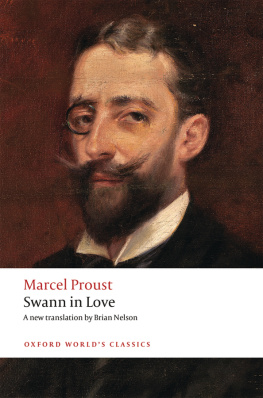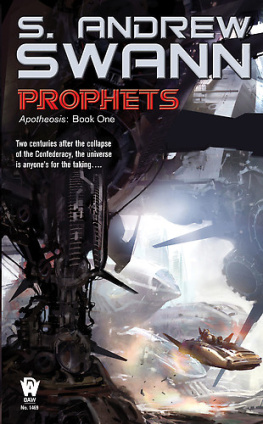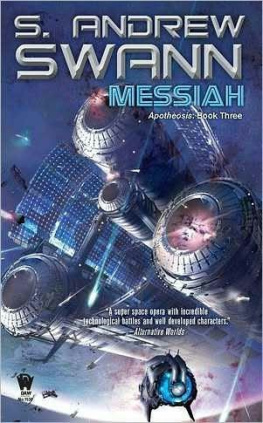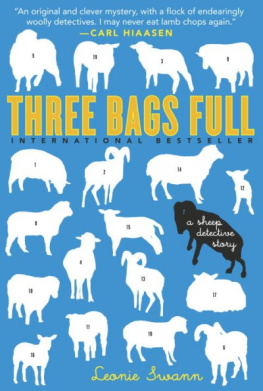Thomas Swann - How are the Mighty fallen
Here you can read online Thomas Swann - How are the Mighty fallen full text of the book (entire story) in english for free. Download pdf and epub, get meaning, cover and reviews about this ebook. genre: Romance novel. Description of the work, (preface) as well as reviews are available. Best literature library LitArk.com created for fans of good reading and offers a wide selection of genres:
Romance novel
Science fiction
Adventure
Detective
Science
History
Home and family
Prose
Art
Politics
Computer
Non-fiction
Religion
Business
Children
Humor
Choose a favorite category and find really read worthwhile books. Enjoy immersion in the world of imagination, feel the emotions of the characters or learn something new for yourself, make an fascinating discovery.

- Book:How are the Mighty fallen
- Author:
- Genre:
- Rating:4 / 5
- Favourites:Add to favourites
- Your mark:
- 80
- 1
- 2
- 3
- 4
- 5
How are the Mighty fallen: summary, description and annotation
We offer to read an annotation, description, summary or preface (depends on what the author of the book "How are the Mighty fallen" wrote himself). If you haven't found the necessary information about the book — write in the comments, we will try to find it.
How are the Mighty fallen — read online for free the complete book (whole text) full work
Below is the text of the book, divided by pages. System saving the place of the last page read, allows you to conveniently read the book "How are the Mighty fallen" online for free, without having to search again every time where you left off. Put a bookmark, and you can go to the page where you finished reading at any time.
Font size:
Interval:
Bookmark:
Thomas Burnett Swann
How are the Mighty fallen
Then Jonathan and David made a covenant, because he loved him as his own soul.
And Jonathan stripped himself of the robe that was upon him, and gave it to David, and his garments, even to his sword, and to his bow, and to his girdle.
The King James BibleFriendship is love without wings.
Lord Byron, quoting an unknown sourceCHAPTER ONE
King Saul and his Desert Crawlers had met the Philistines at Michmash and routed the proudest army between Assyria and Egypt. The news had reached Ahinoam, Siren of Crete and Queen of Israel, as she traveled from the capital of Gibeah to the battle site. She approached the camp in a little ox-drawn cart with big wooden wheels which rumbled like a handmill grinding grain. (Horses were Hittite beasts, treacherous beasts, unfriendly to Israelites, untrainable, so it seemed to them. Camels belonged to the Midianites, as scrofulous as their masters. Oxen were slow but dependable.) Three attendants, an old woman, Naomi, who remembered Samson, and twin boys with little to remember but much to anticipate, accompanied her. All of them were much too tired to speak; it was hard even to walk, and from time to time Ahinoam had changed places with Naomi and allowed her to ride in the cart.
Ahinoam was prepared to find a celebration; she found a pervasive and unexplainable gloom. It was not that the men resembled ragged farmers instead of rugged warriors. She was used to the simple goatskin tunics they wore into battle, the cowhide shields and the shepherd staffs metamorphosed into javelins; accustomed also to the odor of the farm, the dirt, leather, and dung. But dishevelment was not the same as defeat. In the days when Saul had smitten the besieging Ammonites and freed the city of Jabesh-Gilead, bone-weary men had raised their voices in psalms to the glory of Yahweh and Saul. Today, in spite of a greater victory, despair was as tangible in the air as the brackish winds from the Dead Sea.
Rocks and rocky hillocks loomed at her oxcart like the formidable giants of Gath. In such terrain the Israelites had won their victory, but her cart was built for roads, her oxen could not climb mountains, and Ahinoam, increasingly impatient, hailed the nearest soldier for details of the battle.
We won a great triumph, my lady, he sighed, limping from an old wound.
Why such a sigh, Caspir? she asked, touching his shoulder with a slender, ringless hand. She knew every man in her husbands army, his wife, and the number of his children. At Ramah they said the Philistines had fled to Askelon in total rout.
Our king has forbidden us to eat meat or drink wine under pain of death. The Philistine herds are fat for the slaughter. Their supply wagons would feed our whole army for a month. But we must touch nothing, neither honeyed wine nor spitted lamb. Meat was a luxury in Israel. One of the rewards of victory was a celebration in which captured cattle-the Philistines had brought herds with the obvious intention of occupying the countryside-were slaughtered according to an ancient ritual and ravenously devoured on the battle site. We fought valiantly for your husband, our king, but where is the man who doesnt hope for a share in the spoils of battle? We dont even dare to keep the little golden mice the Philistines dropped in their flight. The mice were amulets to protect their carriers from boils and the plague.
Saul is in one of his dark moods?
Not dark, exactly. Darkening, I would say. Samuel has been sending him messages, and it was doubtless Samuel who suggested the edict: Let him who eats or drinks before nightfall be accursed by the Lord, and his curse shall be death. Thus did the king exhort his troops. But the words have the ring of the Prophet, dont you think?
A day is a long time for hungry men, she said. But the time will pass, and the feast will be better for being late. Though a queen as well as a Siren before she had married Saul, she was used to this poor little desert kingdom without fixed boundaries, and many times she had fled with her household before the advance of Philistines, Ammonites, or Moabites and lived for weeks on lizards and manna. She could not understand how gloom could have pervaded an entire army because of a senseless but minor edict, a short privation.
Ah, my lady, that would be true if it were only a matter of fasting for a day. But Elim, the priest, slew three good men with his own hand. He caught them eating a bunch of grapes and smote them with the grape stains still on their lips. One was my cousin.
She shuddered and leaned for support against the cart The brutalities of this country would never cease to appall her, of Israel no less than of its enemies, of Saul no less than of his less enlightened generals. (And men equated Sirens with cannibalism!)
It was a harsh edict, she confessed. I grieve for your cousin, Caspir. Saul is much changed these days. All of Israel knew of her shame and how she had been replaced in her husbands bed by the painted concubine, Rizpah. They also knew of the madness which grew in Saul like a black desert lichen and of the young shepherd, David, who sang to him in his rages or stupors and brought him a measure of peace.
Saul had not expected her to come to his camp at Michmash. He still recognized her as his queen, both in private and before his people, but for five years she had remained, a virtual recluse, in his fortified house at Gibeah. Her daughters, Michal and Merab, and her sons, Ish-Bosheth, Machishua, and Ahinidab, and whenever his father allowed him to leave the army, her oldest son, Jonathan, had kept her company, though the memory of giant wings, a sunken palace of amber and coral, fields of yellow gagea spread like a golden fleece, were a jagged shard in her heart. Now it was Rizpah, the concubine, whose tent, emblazoned with jackals after the custom of her land, was pitched beside that of Saul, and Rizpahs laughter which bubbled like the Jordan as it left the Sea of Chinnereth. But Ahinoam had come to Michmash net to visit Saul, she had come to visit Jonathan. He too had his bouts with a demon.
He was a great hero to his people, however, and, so Ahinoam learned from Caspir, he had never been more heroic than against the Philistines in the recent battle. Caspir had obviously memorized the tale.
Under cover of darkness and accompanied only by his devoted armorbearer Nathan, Jonathan scaled the heights of Michmash held by the enemy. Remembering Gideon, he and Nathan broke pitchers, flourished torches, set fire to the parched undergrowth, and sowed such confusion among the enemy that they fell to fighting among themselves, and the rest of us-outnumbered and armorless-climbed the hill and easily put them to rout.
Ah, she sighed. Then he is safe. If only-
If only Jonathan rejoiced in victory. How well she knew that he preferred a hoe to a spear, a harp to a sword! After every battle, a sorrow of cruel and penetrating clarity descended upon him, and he lamented the friends he had lost, the enemies he had slain and for whom he seemed to grieve almost as much as for his countrymen, and sighed, All men are equal in Sheol-shadows who mingle with shadows but cannot speak.
She had come to solace him in his grief, and she earnestly hoped to exorcise his demon.
The soldiers in the camp, as always, greeted her with a fervor which never failed to pulse in her blood and quicken the remnants of wings at her shoulder blades to a semblance of flight. It was not merely that she was a queen and a woman among a host whose king did not allow harlots and wives to follow his army and pleasure his men after battle. It was not merely that, in spite of her hundred years-a secret withheld from everyone, including Saul and Jonathan she was incontestably the fairest woman in Israel. She did not need or wish to flaunt her face or exploit her body. She walked as artlessly as a maiden balancing a jar of water on her head. She laughed like a young girl who has been betrothed to the boy she loves instead of the old man with many herds. Israelite men-and most of them were natural poets, in spite of their rough ways-liked to speak of Ahinoam in terms of bees and honey. Her backswept hair was yellower than the bands of a bumblebee. She was redolent of myrrh and pollen and, like the bees which help to pollinate the flowers, she was one of natures handmaidens. Finally, like every true queen, she possessed a sting. When Saul replaced her with Rizpah in his heart and in his bed, he looked as if he had met and barely survived a lion, and his tent collapsed on a ruin of mats, pitchers, and weapons, while Ahinoam, her robes in perfect array, departed with the poise and circumstance of a visiting queen from Sheba. Furthermore he found no sympathy among his people, and Rizpah, the first time she visited the well at Gibeah without attendants, was pelted with stones by the women of the town.
Font size:
Interval:
Bookmark:
Similar books «How are the Mighty fallen»
Look at similar books to How are the Mighty fallen. We have selected literature similar in name and meaning in the hope of providing readers with more options to find new, interesting, not yet read works.
Discussion, reviews of the book How are the Mighty fallen and just readers' own opinions. Leave your comments, write what you think about the work, its meaning or the main characters. Specify what exactly you liked and what you didn't like, and why you think so.







